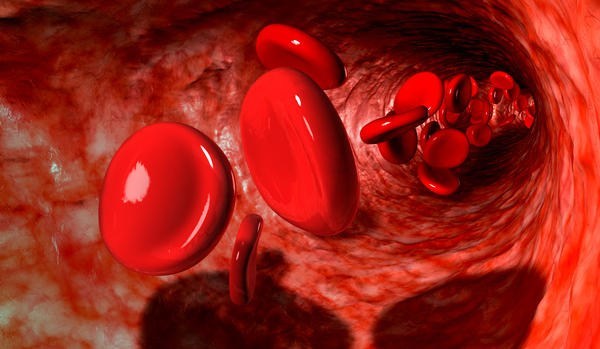Oral Arginine therapy appears safe, effective for sickle cell disease pain management
ORLANDO — Oral supplementation with arginine resulted in faster resolution of pain associated with vaso-occlusive episodes among younger patients with sickle cell disease, according to the results of a randomized phase 2 trial presented at ASH Annual Meeting and Exposition.

The study also showed that patients who had previous arginine supplementation required fewer analgesic agents to control pain and had shorter hospital stays than controls.
“When patients have crisis episodes associated with sickle cell disease, the current mode of treatment is the use of an analgesic, which is mainly for symptomatic control,” Richard Onalo, FCPaed, head of the department of pediatrics at University of Abuja in Nigeria, and one of the study co-authors, told Healio. “However, there is no molecular way to address the genetic basis of sickle cell disease. Arginine is a supplement used by the body that produces a vaso-relaxation effect, and previous studies showed that arginine supplementation is useful in lowering pulmonary hypertension.”
Onalo said the previous findings motivated his group to explore whether arginine supplementation could have a positive effect on pain control during vaso-occlusive crisis episodes in patients with sickle cell disease.
“My country has the highest number of patients with sickle cell disease in the world, so if there are any studies that produce positive results, then they should be done in Nigeria,” Onalo said. “That’s the main reason why we conducted this study.”
Onalo said the key takeaway from the study is that arginine supplementation is safe and demonstrates a fast reduction in pain among patients with sickle cell disease. It also significantly reduced the amount of analgesic needed for treatment during painful episodes.
“We also found that the time to revolve symptoms during crisis was shorter among those patients who received previous arginine supplementation,” Onalo told Healio. “If arginine is used, it produces good clinical outcomes with shorter hospital stays, which translates into savings of time and money treating these patients.”
The blinded, placebo-controlled study was performed at two hospitals in Nigeria and included 68 patients aged 5 to 17 years with sickle cell disease who were admitted to the pediatric unit for vaso-occlusive pain.
Researchers randomly assigned patients to arginine supplementation (n = 35; mean age, 10.7 years; standard deviation [SD], ± 3.3 years; 51% male) or placebo (n = 33; mean age, 10.5 years; SD, ± 3.5 years; 61% male). The arginine and placebo groups had similar baseline characteristics, including pain scores (8.7; SD, ± 1.1 vs. 8.4; SD, ± 1.3).

Cheryl Mensah
The key takeaway from this study showed how supplementation with oral arginine decreased patients’ length of stay during pain crisis episodes. The other important point was the non-statistically significant decrease in narcotic medications needed by those who received the supplement.
These are important findings, and arginine supplementation should be considered as a tool to address acute pain crises that require hospitalization.
Unfortunately, there are very few options available for inpatient treatment of pain during these crisis episodes. We use IV fluids, NSAIDs or opioids to treat symptoms, but there is nothing available that will help decrease length of stay or that treats the underlying cause of sickle cell disease for patients who are admitted to the hospital. Arginine supplementation is a valuable addition to treatment options in an area where very few options exist.
Many hospitalists are frustrated with their options for treating patients’ sickle cell disease-related pain crises. Future studies that bring arginine supplementation into the acute care setting are warranted and hopefully will help hospitalists get their patients out of the hospital faster.
- Cheryl Mensah, MD
- Weill Cornell Medicine
- NewYork-Presbyterian
Disclosures: Mensah reports honoraria from bluebird bio and Vertex Therapeutics.




Recent Comments